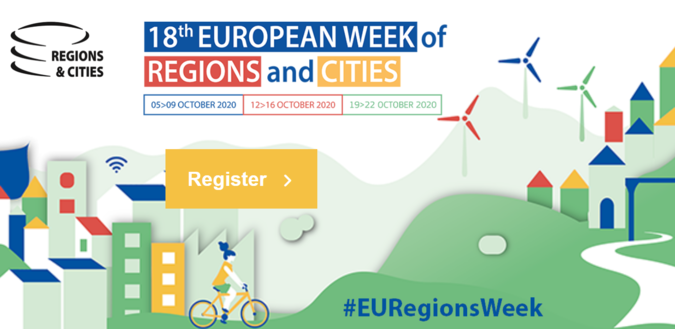The outbreak of the coronavirus at the beginning of this year brought us into a new and unexplored dimension. Priorities have changed, new challenges arose and others have become more urgent. Protecting citizens from new surges of the pandemic and revitalising sectors of the economy that have been severely hit by lockdown measures has become paramount.
The European Commission has mobilised an unprecedented amount of funds and instruments to respond to these challenges, while being forward-looking and identifying beforehand the green and digital transition as its main political objectives. They will be the basis of a new sustainable and inclusive growth strategy for Europe.
EUSAIR is a unique cooperation tool for implementating the Commission’s priorities, core EU values and EU policies beyond EU borders. EUSAIR is well placed to foster cooperation between the Member States and the Western Balkans and to respond jointly to the socio-economic consequences of the COVID-19 crisis by facilitating investments in improved transport and energy links, digitisation, tourism, culture, the blue economy and more.
EUSAIR is at a turning point. An evaluation of its impact, after six years of operation, is going to be released soon. In this context, a discussion will be opened up to rethink the role of EUSAIR in line with the current and new global challenges, to foster the stability and prosperity of Southeastern Europe, and to build on our shared strategic interests. The renewed EUSAIR should be better framed around the following principles: flexibility and adaptability, effectiveness and shared strategic interests.
This workshops aims to pull together EUSAIR key implementers, stakeholders and think thanks to discuss and brainstorm on the future of EUSAIR. In order to give food for thought to participants, the workshop will start with keynote speeches on the latest developments in EUSAIR, its achievements and challenges and the environmental, safety and security situations in the region.
A debate will then be opened up with the support of several guiding questions. Participants will be invited to intervene freely and put on the table their proposals for a EUSAIR that strives for more.
DRAFT AGENDA
Moderator: DG REGIO – Giuseppe Di Paola
- Welcome and introduction
- Jean Pierre Halkin – DG REGIO – Head of Unit
- Latest developments in EUSAIR
- Andreja Jerina – EUSAIR Slovenian Presidency – National Coordinator
- Evaluation of EUSAIR and the possible need to update its priorities
- Ioannis Firbas – EUSAIR National coordinator (Greece)
- A Greener and Low Carbon Adriatic and Ionian Region
- Luisa Chiodi – Director OBC Transeuropa (OBCT) (on the basis of the ADRION territorial analysis)
OPEN DEBATE on the following questions:
- Are the current priorities of EUSAIR fit for the challenges of the future?
- Should EUSAIR countries enlarge cooperation to other sectors? (e.g. healthcare, fighting poverty, safety and security, migration, digitisation, etc.)
- How to respond jointly to the COVID-19 crisis and its consequences? Which sectors should be prioritised to enable the Adriatic Ionian economies to recover?
- How to increase EUSAIR contribution to the European Green Deal and the Green Agenda for the Western Balkans and their objective of a climate-neutral Europe by 2050 both in the Member States and the Western Balkans?
Moderator:
Giuseppe Di Paola, EUSAIR coordinator, EU Commission – DG REGIO, Belgium.
Speakers:
Luisa Chiodi, Director, OBC Transeuropa (OBCT), Italy.
Ioannis Firbas, General Director – EUSAIR National Coordinator, Ministry for Development and Investments General Secreteriat for Public Investments and ESPA, Greece.
Jean-Pierre Halkin, Head of Unit D1, European Commission, REGIO.D1, Belgium.
Andreja Jerina, EUSAIR National Coordinator, REPUBLIC OF SLOVENIA MINISTRY OF FOREIGN AFFAIRS, Slovenia.
Code: 14WS1475V
Language: english (en)
Virtual platform: Zoom
INFO: https://europa.eu/regions-and-cities/programme/sessions/1475_en






